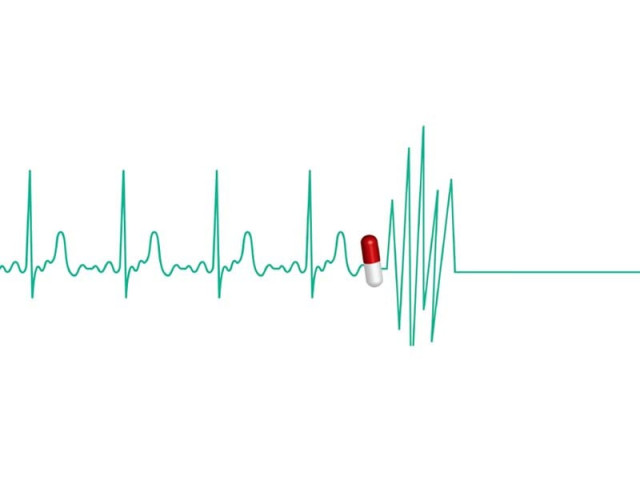Contaminated drugs debacle: Many a slip between the factory and the shelf
Debacle indicative of systematic error, says PPMA chairman Muhammad Asad Khawaja while talking to The Express Tribune.

Contaminated drugs debacle: Many a slip between the factory and the shelf
Isotab may have been a contaminated pill but drug manufacturers say the route from factory’s conveyor belt to patients’ medicine cabinets is a long one – and responsibility lies all along it.
A day after Punjab Chief Minister Shahbaz Sharif revealed that a batch of Isotab tablets, meant for heart patients, had been contaminated with an anti-malarial chemical, the Pakistan Pharmaceutical Manufacturers Association (PPMA) claimed the real culprit is the lack of a drug regulatory authority.
The debacle is indicative of a systematic error, said PPMA chairman Muhammad Asad Khawaja while speaking to The Express Tribune.
Even if the company manufactured faulty medicine, what were the drug inspectors and the managers at the Punjab Institute of Cardiology doing after the drugs were distributed, he said.
Pending issue
Seven months after the Ministry of Health was devolved under the 18th Amendment, health departments are still reeling from issues as a result of the unstructured transition. Topping the list is the lack of a drug regulatory authority (DRA) to monitor and conduct quality control checks on pharmaceutical companies and their products.
“The issue of the DRA is still with the Council of Common Interests and no decision has been taken on it as of yet,” said Sindh health secretary, Syed Hashim Raza Zaidi.
A decision may be expedited, given the contaminated drugs debacle, he said.
As a standard practice, Zaidi added, the provincial health department always sends medicines for tests at the laboratory whenever they are bought in large quantities for public sector hospitals.
Cost of panic
Panic over a batch of contaminated medicine threatens to upend a multi-million dollar industry. Economist Arshad Zaman says it poses a serious damage to “Pakistan as a brand” in the global market.
“There are over 400 [pharmaceutical] companies [in Pakistan],” said vice chairman for PPMA Tariq Ikram. “Each company produces an average of 100 products. Millions of units are produced. This is just one company and one product. Such instances happen once in a lifetime and the entire industry’s image should not be damaged because of it,” he said.
The association chairman said contaminated drugs and their recall is a global phenomenon that has affected giants like GlaxoSmithKline and Johnson & Johnson.
Heparin, an anti-coagulant was recalled in March 2008 after a contaminated batch imported from China killed 81 people in the US.
Earlier, Tylenol, a popular American painkiller manufactured by Johnson & Johnson killed seven in 1982 before the product was recalled across the United States.
Repercussions
But panic is spreading fast. The mounting death toll in Punjab and reports from a laboratory in London stating Efroze Pharmaceutical’s IsoTab contained high dosage of anti-malarial pyrimethamine, have led to at least five countries banning cardiology medicines from Pakistan, PPMA says.
Pakistan’s pharmaceutical industry has an estimated worth of $200 million, exports $100 million worth of medicines to over 60 countries, and an annual growth rate of around 30%, said Khawaja.
All that may be on the stake because of a single contaminated batch.
“For decades people have been taking Pakistani medicines and now one dispatch after another is being stopped,” says former PPMA chairman Kaiser Waheed. “The cancellations and bans have started but it will be six months before we can accurately quantify the impact.”
Waheed also defended the company, Efroze Pharmaceutical, which he said has been in the industry for around half a century and exports to 27 countries.
“They are a well-known family in the business. They are known as the ‘dawai walas’ because their forefathers were in the business in Calcutta before partition,” he said.
Edited by Gulraiz Khan
Published in The Express Tribune, February 3rd, 2012.


















COMMENTS
Comments are moderated and generally will be posted if they are on-topic and not abusive.
For more information, please see our Comments FAQ